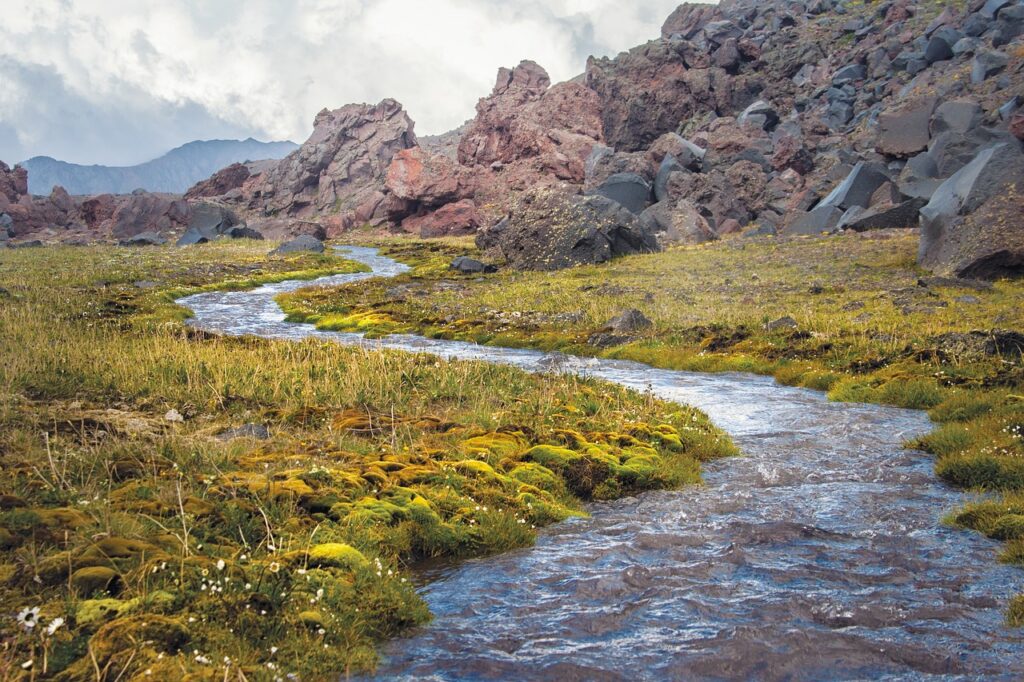In our fast-paced, technology-driven world, it’s easy to lose touch with the natural environment that surrounds us. Yet, there’s a powerful antidote to the stresses of modern life that’s been right under our noses all along – nature itself.
Nature therapy, or ecotherapy, is an emerging field that leverages the healing power of the natural environment to enhance mental well-being.
“In every walk with nature, one receives far more than he seeks.”
John Muir – famous naturalist
This simple yet profound statement encapsulates the essence of nature therapy and its potential to transform our lives. In this article, we’ll explore the incredible benefits of nature therapy for mental health, providing you with practical insights and actionable techniques to incorporate this healing practice into your daily life.
Overview of Nature Therapy

Nature therapy, also known as ecotherapy or green therapy, is a holistic approach to well-being that harnesses the healing power of the natural world. It’s based on the idea that connecting with nature can have significant positive effects on our mental, emotional, and physical health. It includes activities like walking in forests, gardening, spending time by the water, or simply sitting in a park.
The concept isn’t new – throughout history, cultures worldwide have recognized the restorative properties of nature. However, in recent years, scientific research has begun to validate what many have intuitively known for centuries.
Importance of Mental Health in Personal Development
Mental health is key to personal development. It influences how we think, feel, and act, affecting our ability to handle stress, relate to others, and make choices. Our mental state affects every aspect of our lives – from our relationships and career success to our physical health and overall life satisfaction.
By prioritizing our mental health, we’re laying the foundation for personal growth, resilience, and a more fulfilling life. Without good mental health, personal growth can be stunted, making it challenging to achieve our full potential. Nature therapy offers a unique approach to nurturing mental health, and promoting holistic well-being through the connection with the natural world.
What is Nature Therapy?

Definition and concept
Nature therapy is an evidence-based practice that involves engaging with natural environments to improve mental and physical well-being. It’s not just about being in nature; it’s about actively connecting with it, using all our senses to immerse ourselves in the natural world.
Dr. Qing Li, author of “Forest Bathing: How Trees Can Help You Find Health and Happiness,” describes it beautifully: “The key to unlocking the power of the forest is in the five senses. Let nature enter through your ears, eyes, nose, mouth, hands and feet.”
Different Forms of Nature Therapy
Nature therapy can take many forms, making it accessible to people in various settings and with different preferences. Some common types include:
- Forest Bathing: Originating in Japan (known as “shinrin-yoku”), this practice involves mindfully walking in forests or wooded areas.
- Horticultural Therapy: Engaging in gardening and plant-based activities for therapeutic benefits.
- Adventure Therapy: Participating in outdoor activities like hiking, rock climbing, or kayaking.
- Animal-Assisted Therapy: Interacting with animals in natural settings.
- Green Exercise: Engaging in physical activity in natural environments.
- Nature Art Therapy: Creating art inspired by or using elements from nature.
- Blue Space Therapy: Spending time near water bodies, like oceans, rivers, or lakes, to promote relaxation and mental clarity.
The Science Behind Nature Therapy

Research findings on nature’s impact on mental health
The scientific community has been increasingly interested in the effects of nature on mental health, and the results are compelling. A 2019 study published in the journal “Scientific Reports” found that people who spent at least 120 minutes in nature per week reported significantly higher levels of health and well-being compared to those who didn’t.
Research published in Environmental Health and Preventive Medicine found that spending time in forested areas can significantly lower cortisol levels, a marker of stress.
Another groundbreaking study by Stanford researchers found that walking in nature decreased activity in a region of the brain associated with depression. As the lead researcher, Gregory Bratman, noted, “These results suggest that accessible natural areas may be vital for mental health in our rapidly urbanizing world.”
Physiological effects of nature exposure
Nature exposure has several physiological effects that contribute to mental well-being:
- Reduction in Cortisol Levels: Time spent in nature helps lower stress hormones.
- Improved Immune Function: Natural environments boost the immune system by increasing the activity of natural killer cells.
- Lowered Blood Pressure: Regular interaction with nature can help maintain healthy blood pressure levels.
- Enhanced Sleep Quality: Natural light and fresh air can improve sleep patterns and overall restfulness.
How Nature Therapy Works

Connection with Natural Elements
Nature therapy works by reconnecting us with the natural world. This connection can be as simple as feeling the grass beneath your feet, listening to birdsong, or watching leaves rustle in the wind. These experiences engage our senses and help us feel part of something larger than ourselves.
Role of Mindfulness and Presence
Mindfulness – the practice of being fully present in the moment – is a crucial component of nature therapy. When we’re in nature, we’re often naturally more mindful, noticing details we might otherwise overlook. As Jon Kabat-Zinn, the founder of Mindfulness-Based Stress Reduction, says, “The little things? The little moments? They aren’t little.”
Mechanisms of Stress Reduction
Nature therapy reduces stress through various mechanisms:
- Attention Restoration Theory: Natural environments provide a respite for our overworked brains, helping to restore attention and focus.
- Stress Reduction Theory: Simply being in nature can trigger a relaxation response, reducing physiological markers of stress.
- Social Interaction: Participating in outdoor activities often involves social interaction, which can further reduce stress and enhance mood.
Mental Health Benefits of Nature Therapy

Reduction of Stress and Anxiety
One of the most significant benefits of nature therapy is its ability to reduce stress and anxiety. A study published in the International Journal of Environmental Research and Public Health found that just 20 minutes in nature significantly lowered stress hormone levels.
To experience this benefit, try this simple exercise: Find a quiet natural spot, sit comfortably, and focus on your breath for a few minutes. Then, slowly expand your awareness of the natural sounds around you. Notice how your stress levels decrease as you connect with nature.
Increased self-esteem
Nature therapy can also boost self-esteem. A 2010 study in the journal Environmental Science & Technology found that just five minutes of exercise in a natural setting improved both mood and self-esteem.
To harness this benefit, set yourself a nature-based challenge, like identifying five different bird species or learning the names of local plants. As you accomplish these goals, you’ll likely notice an increase in your self-confidence.
Improvement in Mood and Emotional Well-being
Nature has a remarkable ability to improve our mood. As the famous painter Vincent van Gogh once said, “If you truly love nature, you will find beauty everywhere.” This beauty can lift our spirits and promote positive emotions.
Try this: Keep a nature gratitude journal. Each day, write down three things in nature that you’re grateful for. This practice can help shift your focus to the positive aspects of the natural world around you, boosting your overall mood.
Enhanced Cognitive Function and Creativity
Nature therapy can also enhance cognitive function and creativity. A study by the University of Michigan found that walking in nature improved memory and attention span.
To boost your creativity, try this technique: Take a “creativity walk” in a natural setting. As you walk, let your mind wander freely. You might be surprised by the ideas that come to you when you’re surrounded by nature.
Alleviation of Symptoms of Depression
Nature therapy is an effective way to alleviate symptoms of depression. The combination of physical activity, exposure to natural light, and the calming influence of nature can lead to significant improvements in mood and mental health.
If you’re feeling low, try spending time in a green space regularly. Even if it’s just a local park, consistent exposure to nature can have cumulative positive effects on mood over time.
Conclusion
Recap of Key Points
Nature therapy offers a holistic approach to enhancing mental health by leveraging the healing power of the natural environment.
The science is clear: connecting with nature can have profound positive effects on our mental well-being. From reducing stress and anxiety to boosting self-esteem and cognitive function, the benefits are vast and well-documented.
Encouragement to Try Nature Therapy

“I go to nature to be soothed and healed, and to have my senses put in order.”
John Burroughs – environmentalist
Start small – a walk in a local park, tending to a houseplant, or simply sitting outside and observing nature. Every moment spent connecting with the natural world is an investment in your mental health and personal growth.
Remember, nature therapy isn’t about achieving perfection or following strict rules. It’s about finding your own unique way to connect with the natural world and reap its many benefits. So step outside, breathe deeply, and let nature work its magic on your mind and spirit. Your journey to better mental health through nature therapy starts now.

Leave a Reply